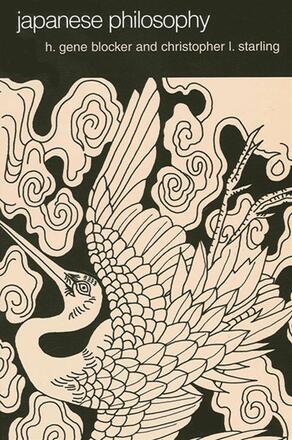
Japanese Philosophy
Alternative formats available from:
An overview of Japanese philosophy from the seventh century to the present.
Description
Japanese Philosophy is the first book to assert the existence of a Japanese philosophy prior to Nishida Kitaro in the early twentieth century. Because of Western military and economic dominance since the seventeenth century, the cross-cultural comparison of non-Western philosophy has generally gone in one direction—comparing Chinese, Indian, and other thought systems with Western philosophy. For various reasons, Japanese scholars did not follow the Chinese lead after 1920 in acknowledging that some of their own literary tradition should be classified as "philosophy." In spite of this, the authors argue that it is useful to compare cultures, and that one way of comparing cultures is to compare their philosophies—and therefore that it is worth treating certain parts of Japanese literature as philosophy, especially those parts that are similar to what has long been classified and treated as philosophy in India and China. By doing so, and by providing an overview of Japanese philosophy from the seventh century to the present, the authors contribute to a greater cross-cultural understanding between East and West.
H. Gene Blocker is Professor of Philosophy at Ohio University. He is the author of Philosophy of Art; Aesthetics of Primitive Art; and World Philosophy, and coeditor of Contemporary Chinese Aesthetics, with Zhu Liyuan. Christopher L. Starling teaches at Kobe Shoin Women's University.
Reviews
"…a skillful interweaving of a large number of strands in the history of ideas. Countless distortions and roadblocks bedevil Western scholars trying to understand Asian texts and cultures, and only recently have we begun to get glimpses of the actual history of Asian thought. This is a welcome contribution to this important work of cross-cultural understanding, and provides a well-informed Western look at the influence of Chinese and Western philosophy on Japan." — Richard T. Garner, coeditor of Society and the Individual: Readings in Political and Social Philosophy
"The book's intellectual freshness comes from presenting Japanese philosophy as structured by the concerns of mainline Western philosophy. Because of this it will be one of those books that you can give to your friends in the philosophy department when they ask, as they always do, whether there is any 'real' philosophy in East Asia. It is an engaging work." — John H. Berthrong, author of Concerning Creativity: A Comparison of Chu Hsi, Whitehead, and Neville